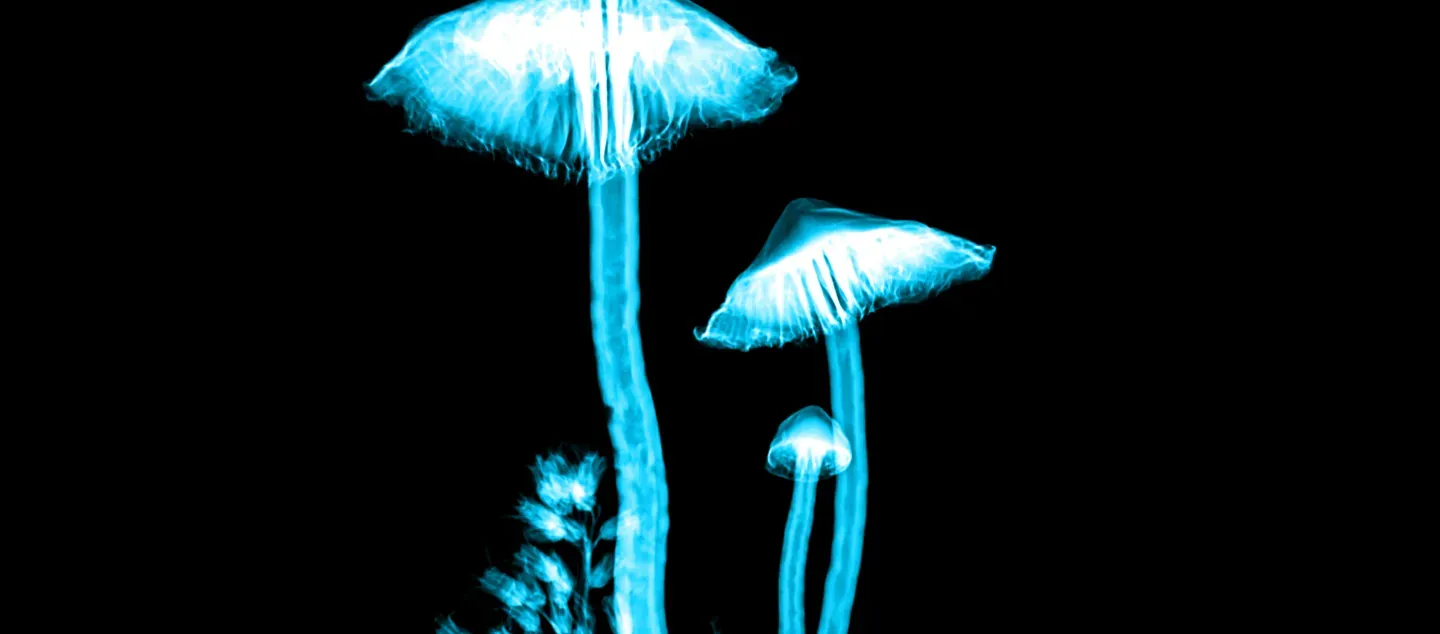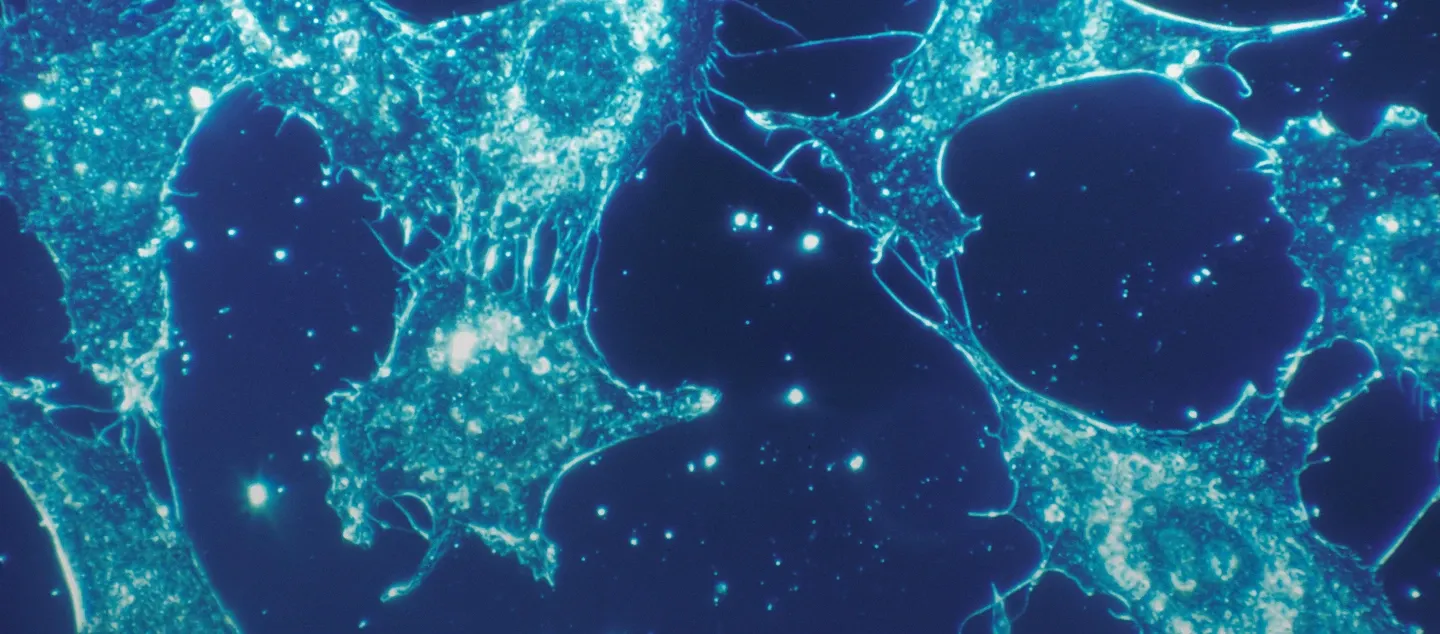Rewilding Mythology
For most of human history, myth was a durable mode of knowledge transmission, kept alive and resilient by the breath-laced web of communal storytelling. But the rise of empire depended on the deracination of mythologies. Just as landscapes were stolen and terraformed so were whole pantheons uprooted from their social and ecological contexts. How can we reroot, rewild, and retell?

hosted by Sophie Strand
Module 1Myco Eco Mytho: An Ecology of Stories
From where does a story sprout? What specific land and soil did it grow from? What ecology is it seeking to tend to, respond to, root into? How do my stories “tell” me into greater intimacy with the kin outside my door? We can reclaim the ecological nature of myths coopted by patriarchal domination by repl...
Module 2Myths Move: Spore Gods, Storm Gods, and Cycles
Ecosystems are constituted by constant cycles of decay and regrowth. We can replant myth in ecology by understanding that storytelling, too, remains healthy when it goes through cycles, decaying, regrowing, and adapting to suit shifting climatological and social pressures. We can examine oral storytelling,...
Module 3Moon Kings, Minotaurs, Mothers: Hidden Wisdom Behind Monster Myths
Picture a classical hero. Chances are, you may have envisioned a knight or warrior slaying a dragon or a gorgon. The hero proves his valour by defeating the adversary. But who is the adversary? Is it really a monster? Or is it a culture that opposes hierarchy? What if there was a secret inside every dragon...
Module 4Liberation, Libation, and Leaven: Rhizomatic Gods of Fermentation, Divine Ecstasy, and Revolt
For too long patriarchy has been conflated with the masculine. But before the sword-wielding heroes of legend readily cut down forests, slaughtered the old deities, and vanquished their enemies, there were thousands of years of vegetal gods associated with the underworld, fermentation, radical social movem...
Module 5Becoming a Mouth: Mythical Musicians Teach Multi-Species Collaboration
Human narratives have held centre stage for thousands of years. But there was a time when legendary bards knew it was their job to channel the stories of animals and plants and stones. We resurrect a long line of magician harpists that span all the way from Palestine to Greece to England. These prophetic f...
Module 6Lichenized Lovers: Rewilding Romance With Symbiosis
Using a lens of Queer Ecology, we can follow a line of love goddesses back to our symbiotic multicellular origins. Aphrodite, born of foam, reminds us of our oceanic ancestors. Inanna teaches us how to tie our roots together in the underworld, recalling the symbiotic origin of plant and fungal root systems...
Module 7Coppicing the Hero’s Journey: Arthurian Legends, Fairytales, and Animism
Our bodies are composed of more bacterial cells than human cells. There are miles of mycelial fungi in a teaspoon of dirt. Resilient ecosystems are resilient in that they are home to many different species. While monomyths like the hero’s journey have long been popular, they are no longer suited to the mor...
Module 8Healing the Healer: Rerooting Yeshua as a Magician Storyteller
Uprooted from the Galilean ecology from which he drew his nature metaphors and translated into the language of his oppressors, the teachings of Jesus have easily lapsed into dogma. How does a storytelling magician get coopted by imperialism and patriarchy? Let us replant Jesus in his original ecological an...
Myths are alive and resilient. They have held practical information about survival and sustenance, nested within compelling narratives that prized the epic stories of multi-species communities over the monologues of human individuals. Surviving through most of human history, they were refreshed and adapted to new conditions each time they were retold. Most importantly, they were contextual. Just as mycorrhizal fungi map the relationships in a forest, so do myths map the specific relationships of a community rooted in place.
The rise of empire brought with it a violent uprooting of myths from their context, and from the renewing respiration of communal storytelling. These stories ossified into abstraction and reinforced the anthropocentric hyper-individuality and colonial capitalism of today.
It is time to reroot, revitalise, relate, rewild. Rejecting the antiseptic impulse of the dominant culture’s bent on exterminating alternative epistemologies, let us compost our favourite myths, folklore, and narratives with ecology, science, somatics, and poetry.
Let us glimpse into the inner worlds of lichen, fungi, rainforests, and songbirds.
About the course
How can we reroot these myths in their original environments to recover the ecological wisdom they were built to transmit? How can we understand that science and mythtelling stem from a similar impulse to cultivate understanding and intimacy with the natural world?
Rejecting the antiseptic impulse of the dominant culture’s bent on exterminating alternative epistemologies, let us compost our favorite myths, folklore, and narratives with ecology, science, somatics, and poetry. Hijacking the tools of material reductionism for our feral creations, we can glimpse into the inner worlds of lichen, fungi, rainforests, and songbirds, understanding that the most important stories right now are always more-than-human.
Finally, let us retell cultural myths and personal stories knowing that, like an ark, they may carry our most precious relationships and seeds of practical wisdom, through the floodwaters and tectonic shifts of tomorrow.
- 8 Modules
- 34 Sessions
- 19 Speakers
- Curated readings, resources and embodied practices
- Community discussion area
- Reroot popular mythologies in their original social and ecological context using a historical, scientific, and anthropological lens;
- Revitalise oral storytelling as a relation mode of knowledge transmission;
- Pour anthropocentric narratives into more-than-human morphologies;
- Decenter human heroes by peering into the sensory worlds of insects, microbes, and fungi;
- Map the webs of relationship that constitute our own backyard mythic ecosystems;
- Think alongside fungi as way of understanding intelligence as a process shared by a community, rather than as an object possessed by an individual;
- Compost progress-oriented paradigms with forest ecology and the wisdom of rot;
- Offer our creative and intellectual tools to other species;
- Step into the spaces left behind by extinction with;
- Use Queer Ecology as a lens to rewild heteronormative value systems.



































